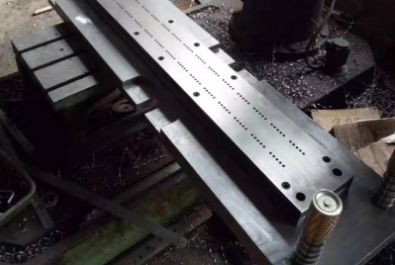Exploring the Efficiency and Innovation of Roll Former Manufacturing Plants Worldwide
The Rise of Roll Forming Factories An Essential Component in Modern Manufacturing
In the rapidly evolving landscape of manufacturing, roll forming has emerged as a pivotal process, particularly in the production of metal products. This specialized method involves the continuous bending of metal sheets into desired shapes, utilizing a series of rollers. The significance of roll former factories cannot be overstated, as they are integral to the creation of various industrial and consumer products.
Understanding Roll Forming
Roll forming is a highly efficient and cost-effective manufacturing process that enables the production of complex shapes with great precision. By feeding a flat strip of metal through a series of rollers, the material is progressively shaped into the desired profile without significant waste. This technique is predominantly used for materials like steel, aluminum, and various alloys, making it versatile for different applications.
The process begins with the selection of high-quality raw materials, followed by the design of custom rollers. These rollers are meticulously engineered to achieve specific geometries, ensuring that each pass through the machine results in the correct shape. The ability to maintain tight tolerances and the consistency of product quality makes roll forming an attractive option for manufacturers across various industries.
The Importance of Roll Forming Factories
Roll former factories play a crucial role in the supply chain of numerous sectors, including construction, automotive, and appliance manufacturing. For instance, in the construction industry, roll-formed products such as roof panels, metal stud framing, and various architectural components are essential for modern building projects. These factories provide the necessary support for infrastructure development, showcasing the versatility of roll-formed products.
In the automotive sector, roll forming is employed to create structural components like frame rails, brackets, and reinforcements. These parts must meet stringent safety standards and performance requirements, making the precision and durability of roll-formed products invaluable. As the automotive industry shifts towards lighter materials to enhance fuel efficiency, roll forming techniques adapt to meet these evolving demands.
roll former factories

Moreover, roll former factories contribute significantly to the appliance industry, manufacturing components such as door frames, heat exchangers, and more. The ability to produce lightweight yet strong materials enables appliance manufacturers to create energy-efficient products, aligning with contemporary sustainability goals.
Technological Advancements in Roll Forming
The advancement of technology has brought about significant improvements in roll forming processes. Automated systems and computer numerical control (CNC) technology allow for high-speed production with minimal human intervention. Additionally, innovations such as smart manufacturing and Industry 4.0 practices are being integrated into roll forming factories, leading to enhanced efficiency and reduced operational costs.
Another notable development is the incorporation of advanced materials. With the rise of specialty alloys and composite materials, roll forming is expanding into new territories. Factories are now able to accommodate varying thicknesses and material properties, broadening the scope of applications and suggesting a bright future for the industry.
Challenges and Future Outlook
Despite its advantages, roll forming factories face several challenges, such as fluctuations in raw material prices and the need for skilled labor to operate and maintain sophisticated machinery. Additionally, the industry's environmental impact is under scrutiny, necessitating more sustainable practices.
Looking ahead, the future of roll forming factories appears promising. As industries continue to push for lightweight, durable, and sustainable products, the demand for roll-formed components will likely grow. Investments in research and development will drive innovations, ensuring that roll forming remains a key player in the global manufacturing landscape.
In conclusion, roll former factories are not merely production facilities; they are the backbone of modern manufacturing that supports various industries. As technology advances and demands evolve, these factories will continue to adapt, shaping the future of manufacturing and driving economic growth.
-
Top Drywall Profile Machine Models for SaleNewsJun.05, 2025
-
The Role of Purlin Machine in Modern Structural BuildingNewsJun.05, 2025
-
The Advantages of Investing in a Metal Roof Sheet Making MachineNewsJun.05, 2025
-
Key Features of Hydraulic Bending MachineNewsJun.05, 2025
-
Innovations in Standing Seam Metal Roof Machine TechnologyNewsJun.05, 2025
-
High - Performance Roof Panel Machine for SaleNewsJun.05, 2025
-
Key Features to Look for in a Roof and Wall Panel MachineNewsMay.23, 2025








